Nature guides declare that two-toed sloths and three-toed sloths share common territories in the Costa Rican rainforest, and we now have photographic proof! Yesterday, a Hoffman’s two-toed sloth, Choloepus hoffmanni, parked herself in an acerola cherry tree near our reception area.
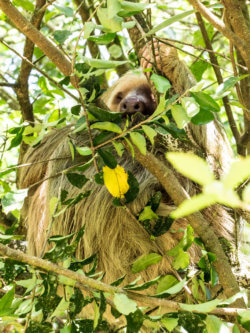
She calmly (of course!) posed for our guests and spent a leisurely day with us, and then this morning we found that she had moved on.
Enter the brown-throated three-toed sloth, Bradypus variegatus, who this morning appeared on a cecropia tree in exactly the same territory.
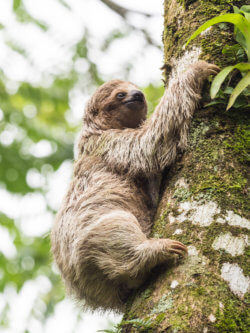
We’ve had our eyes on this young lady since she entered the world. We know her mama, and we’ve long admired the mama’s patient instruction of her baby. If you follow us on the Finca Luna Nueva Lodge Facebook page you’ve seen photos of the mama cautiously teaching the baby how to climb on branches and sample foods, and this almost year-long process has resulted in a fully emancipated female sloth now occupying her mama’s former territory.
We held our breath a bit as the young sloth transistioned from the tall cecropia tree to adjacent canes.
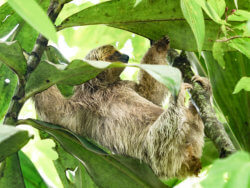
She tested and retested, making sure the canes could support her weight. As she probably weighs only two or so pounds the canes were suitable for the task, but we could see the young sloth’s tentative and disciplined testing. Her mama had taught her well! And then, when parked securely in her new location, she motioned as if to say “what, you doubted me?!”
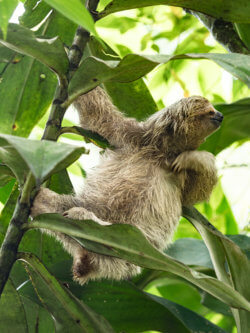
No doubts, but don’t blame us for worrying just a bit. We’ve got high hopes for you, young Bradypus.
The abundant presence of larger mammals like the two and three-toed sloths are indicative of a healthy ecosystem. Guests hiking on our property have seen howler monkeys, agoutis, sloths, ocelots, anteaters, and more, testaments to the biodiversity of our region and the success of our regenerative approach to agriculture. We also give great credit to our neighbor The Children’s Eternal Rainforest, http://www.acmcr.org, for decades of respectful and scholarly conservation work. It’s paying off – just ask the baby ocelot and baby agouti we have recently welcomed to our farm!
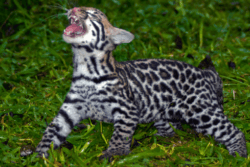
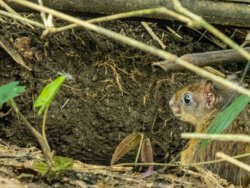
Pura Vida!

